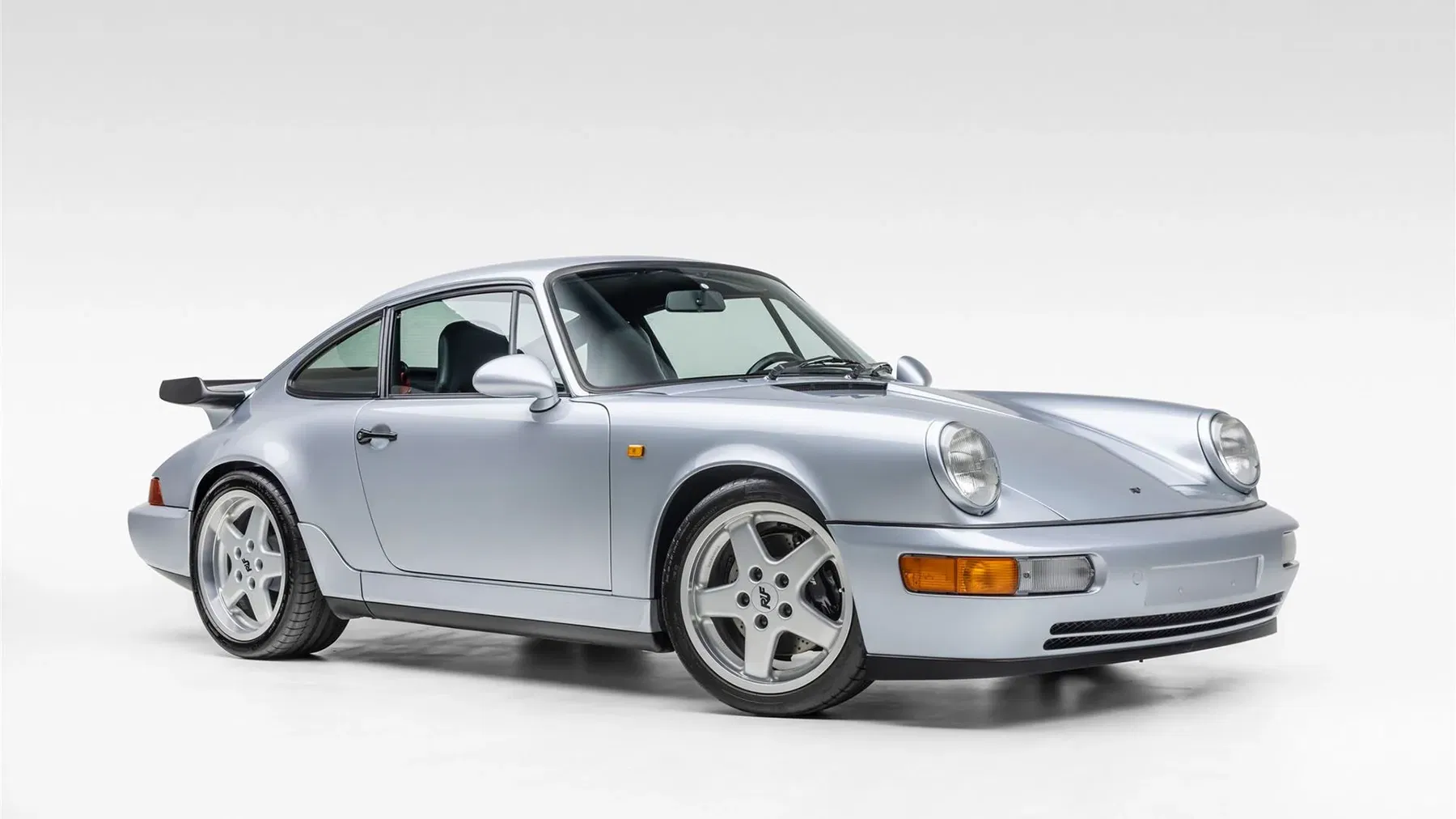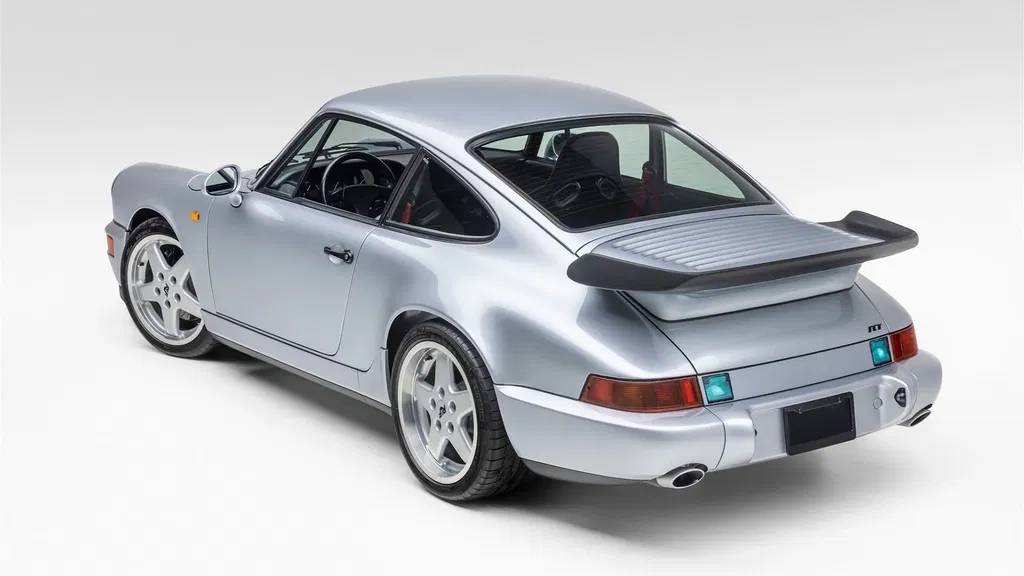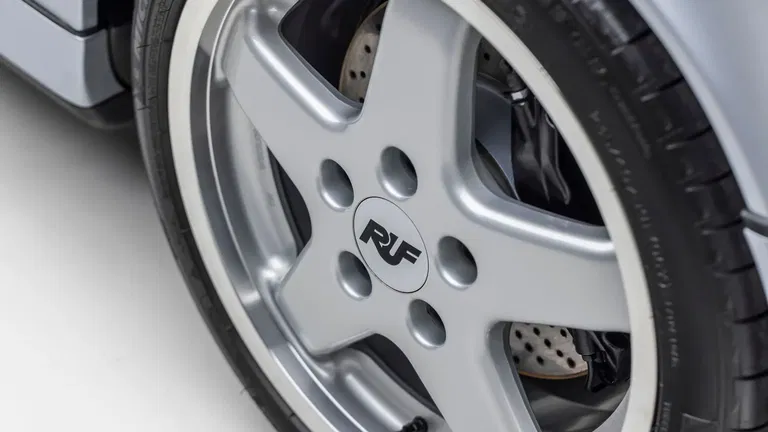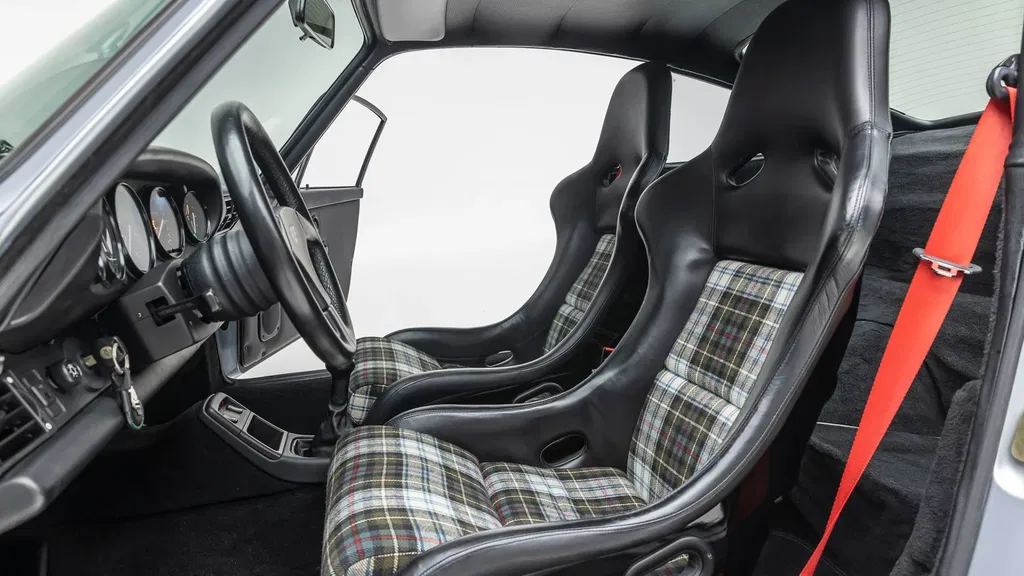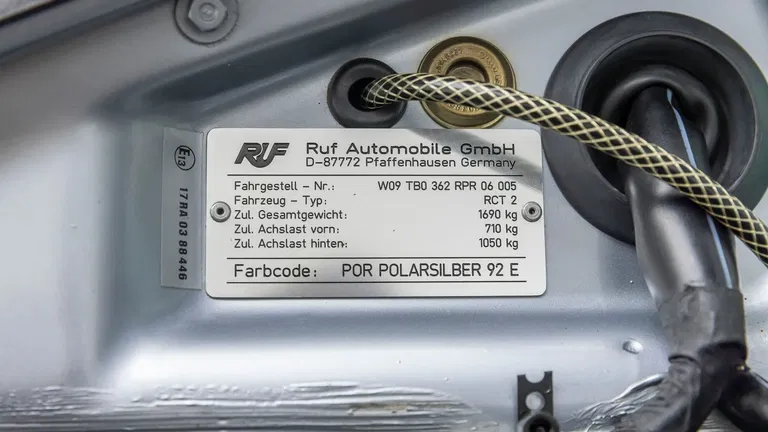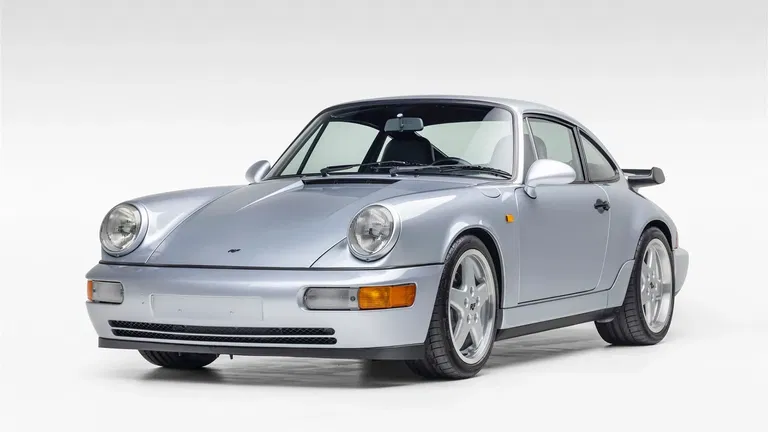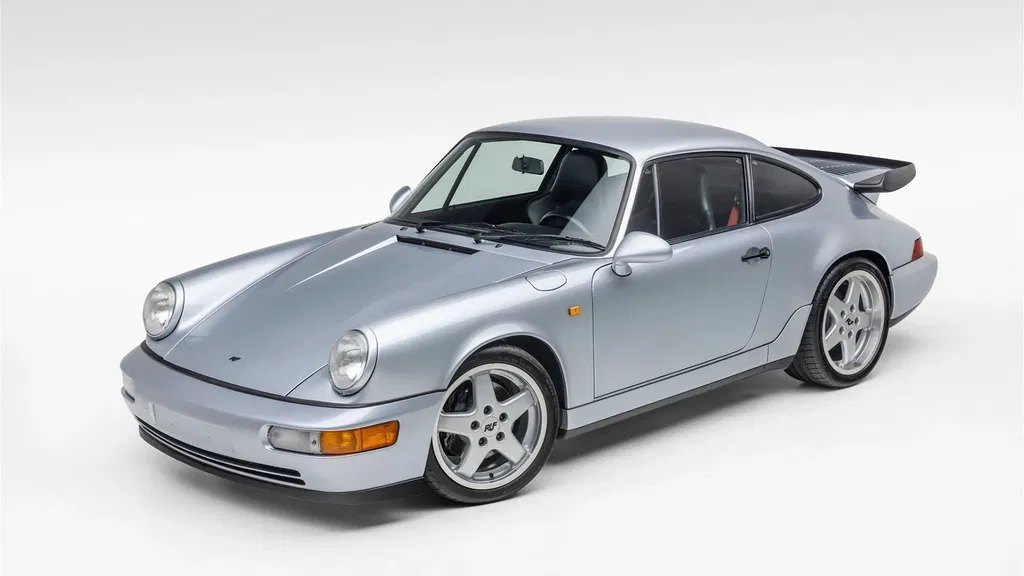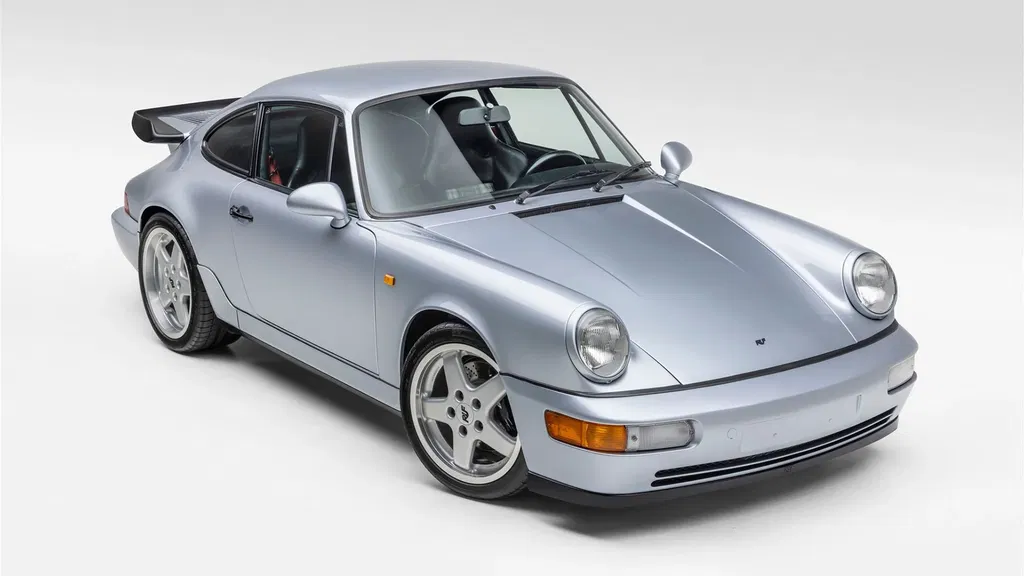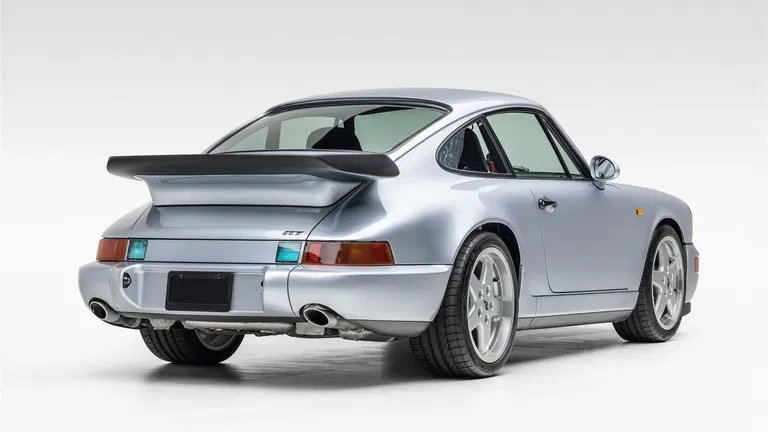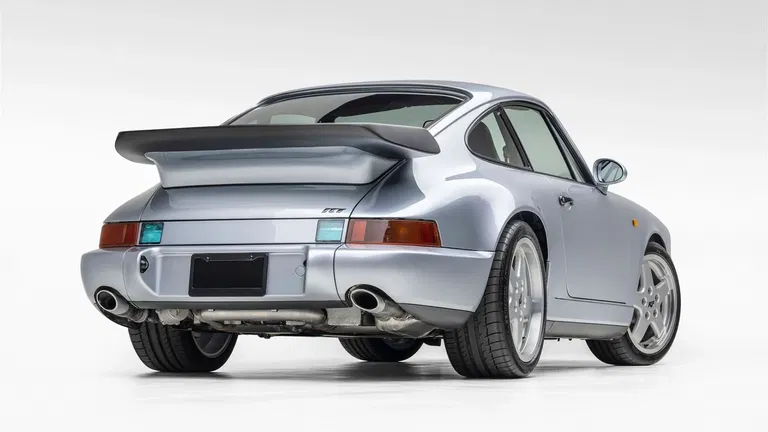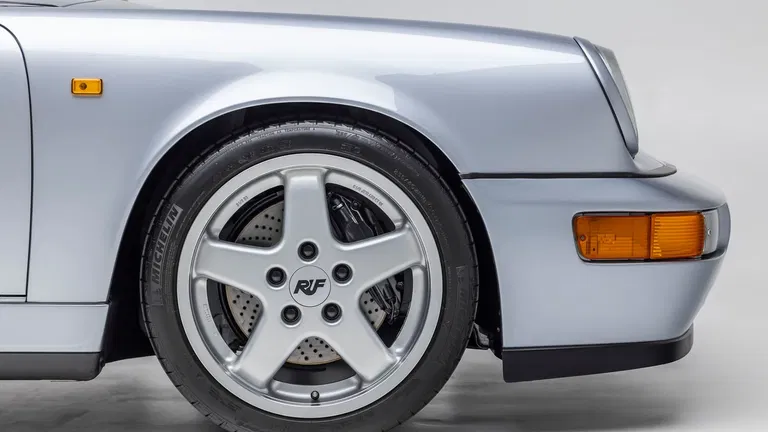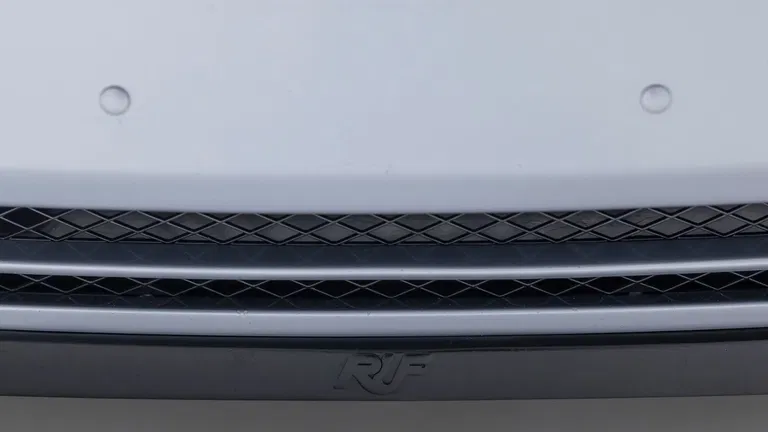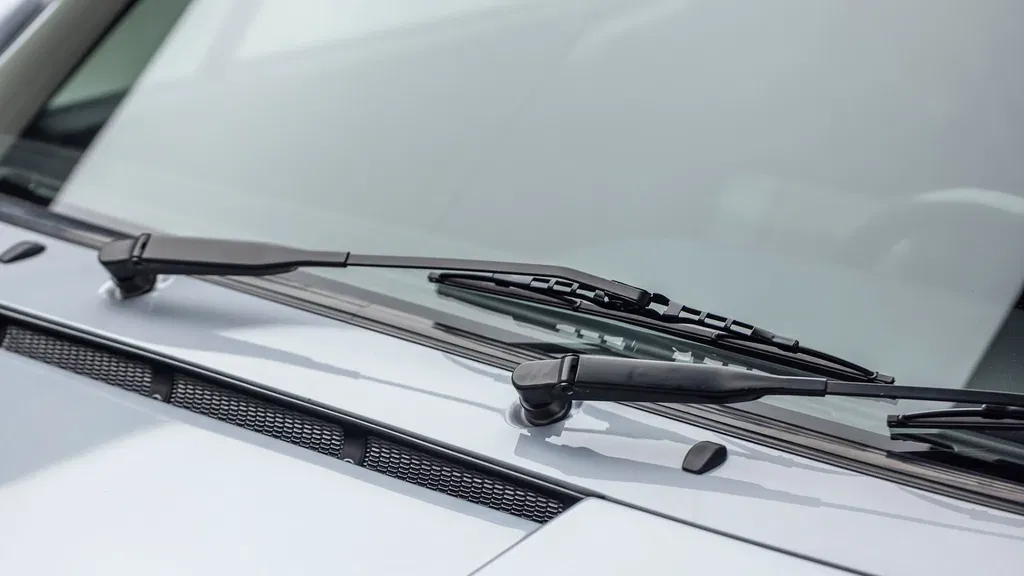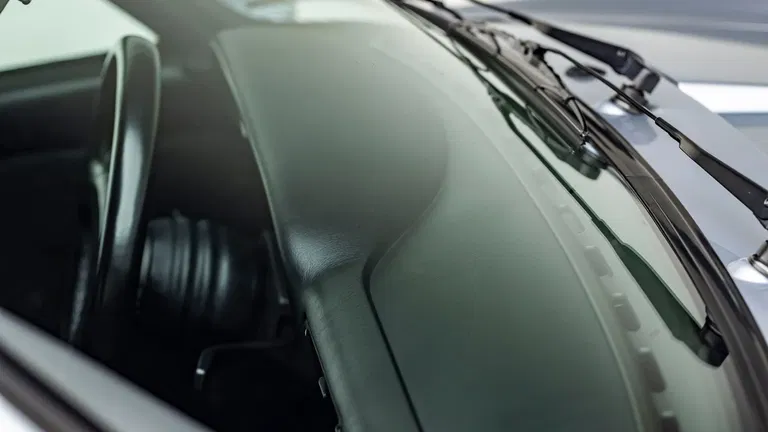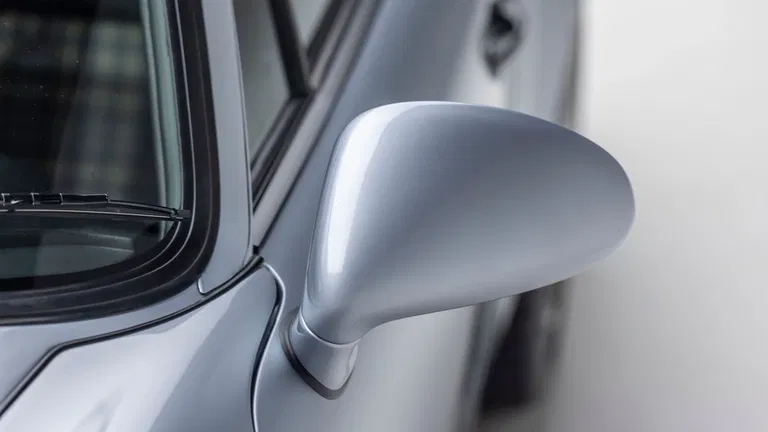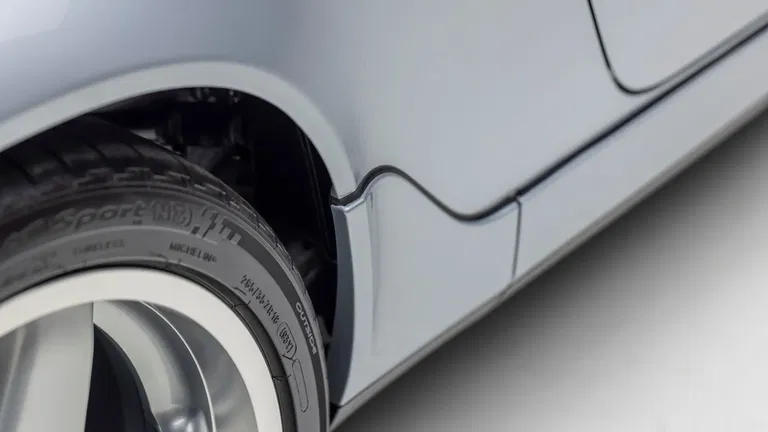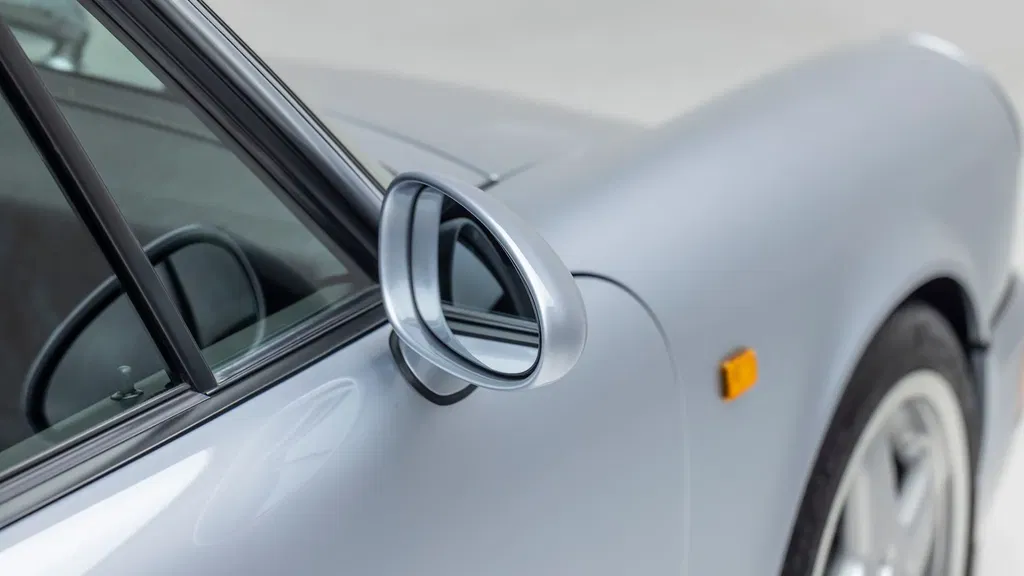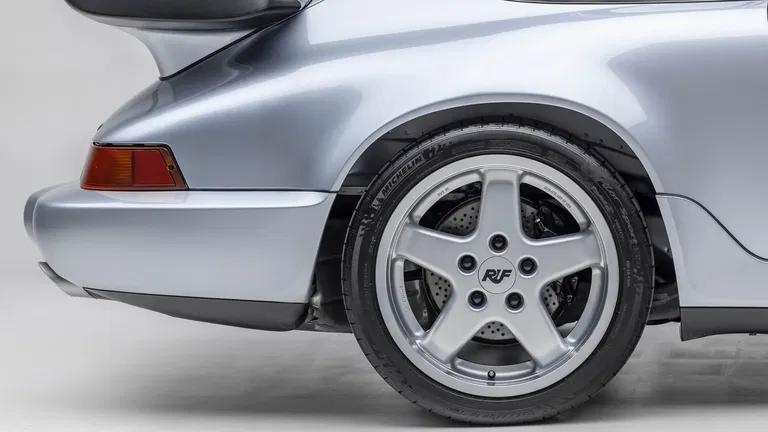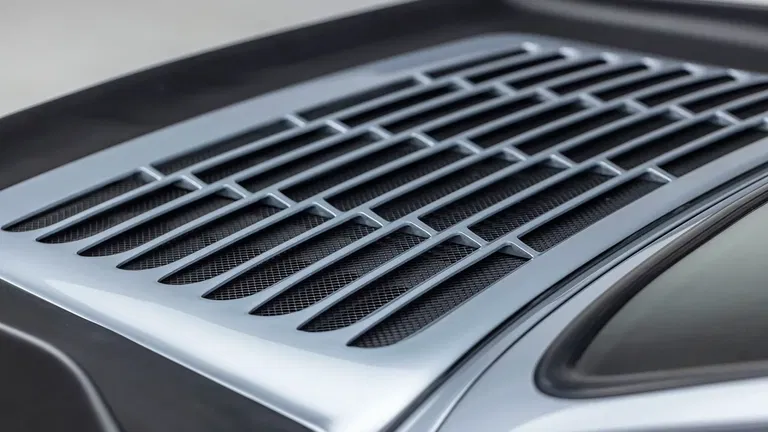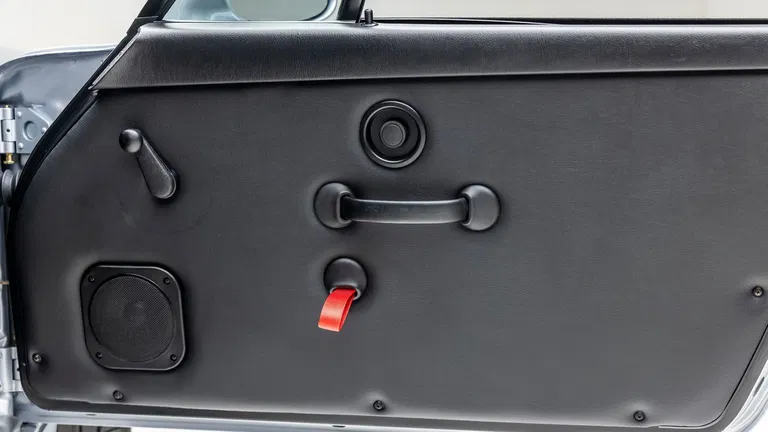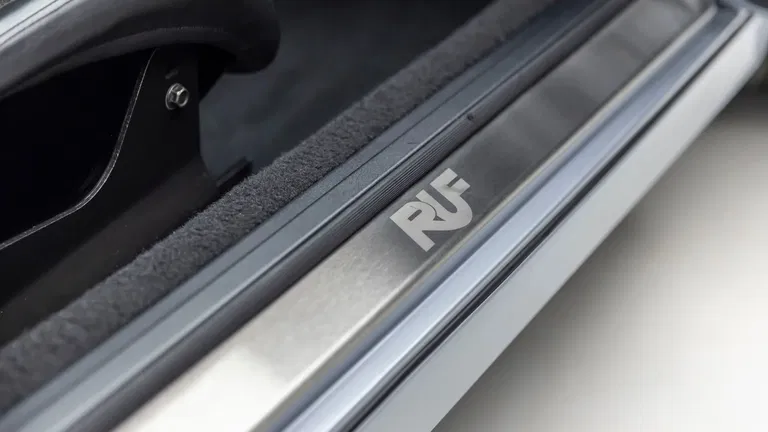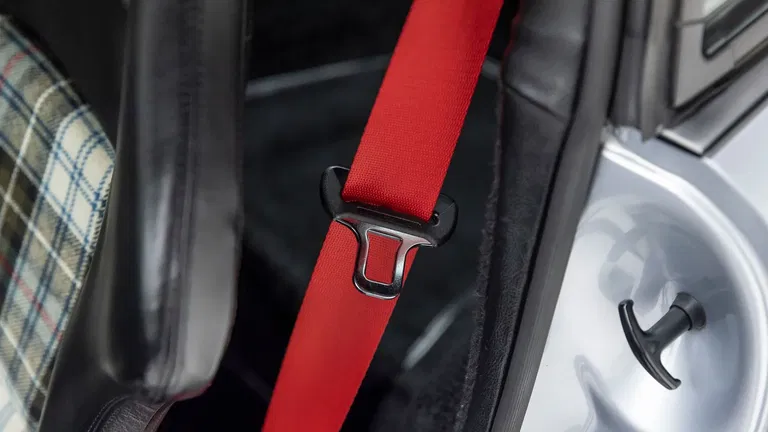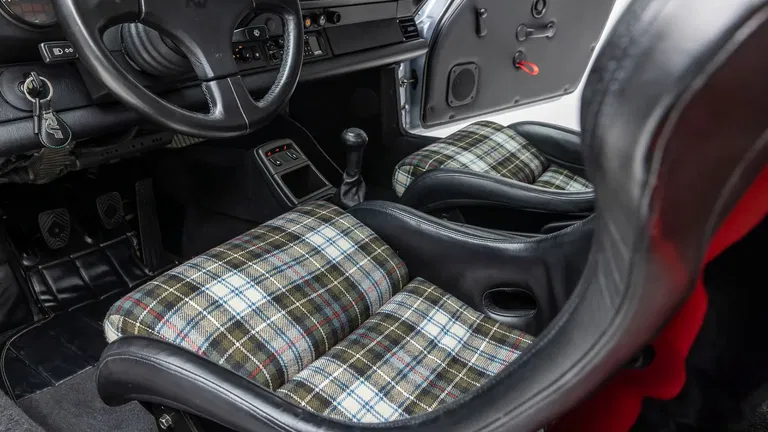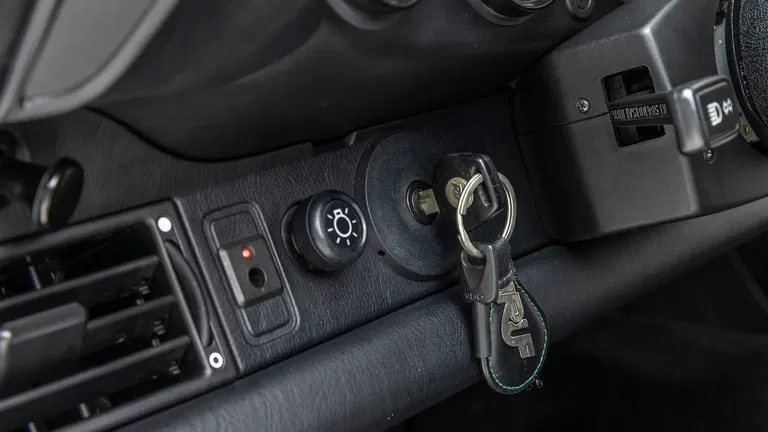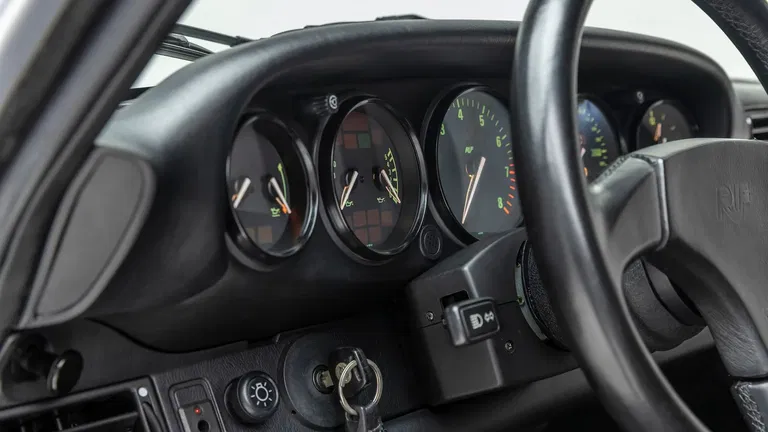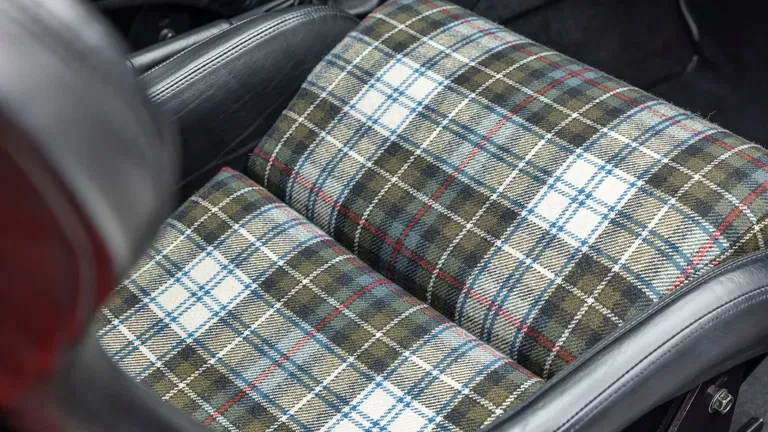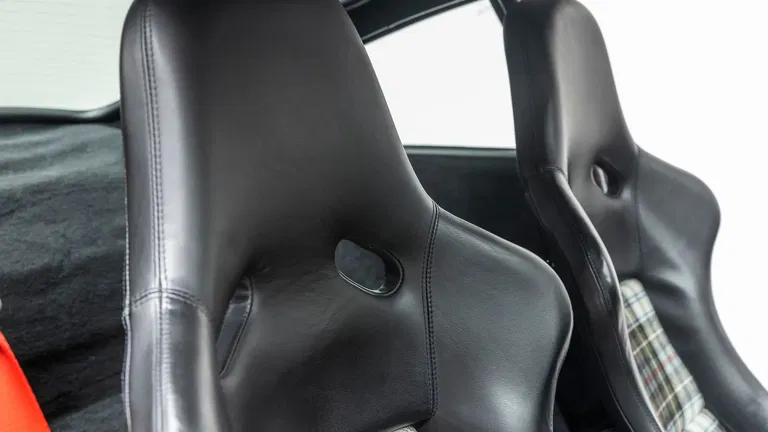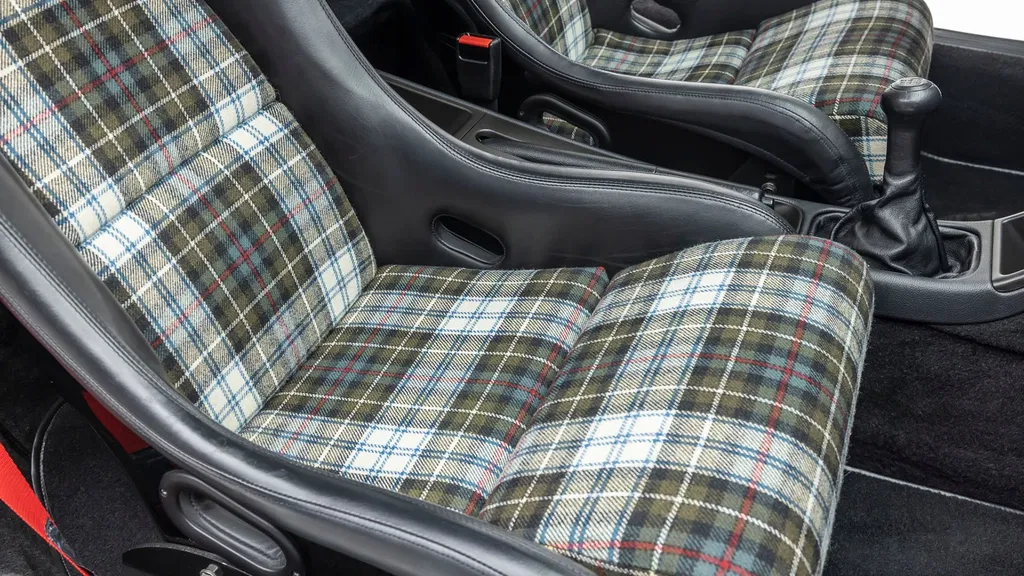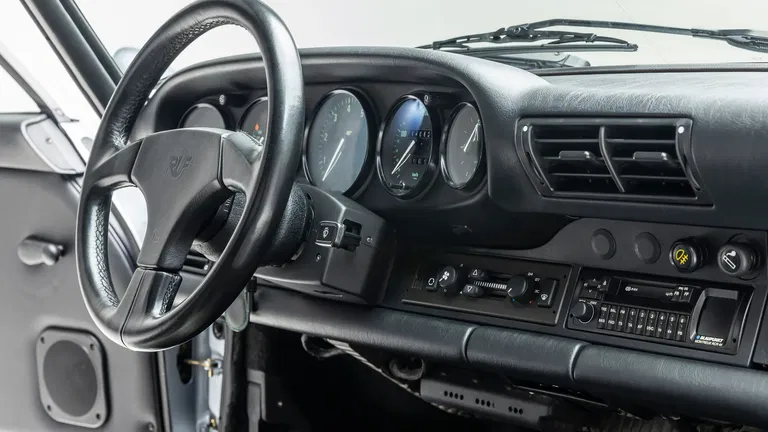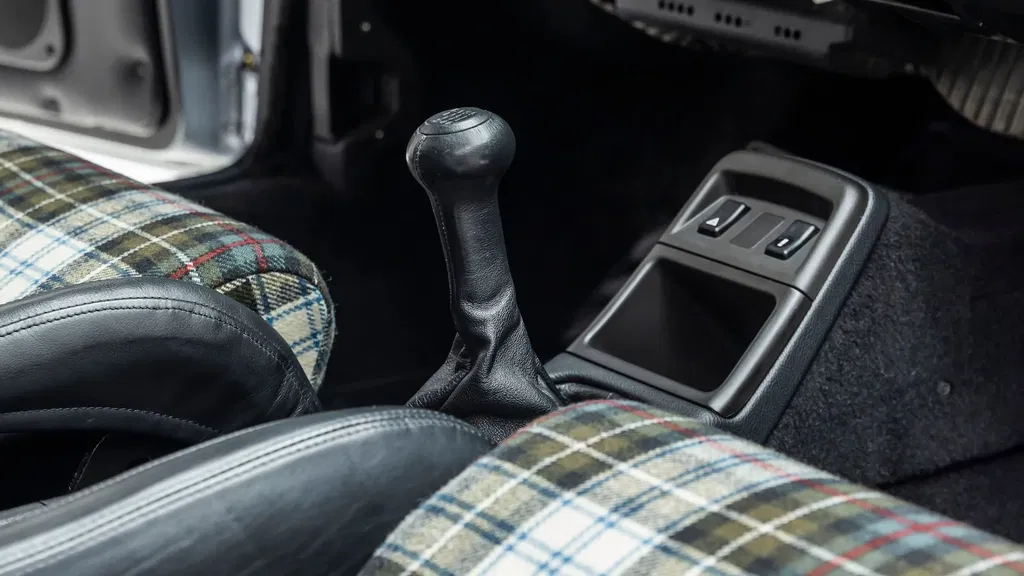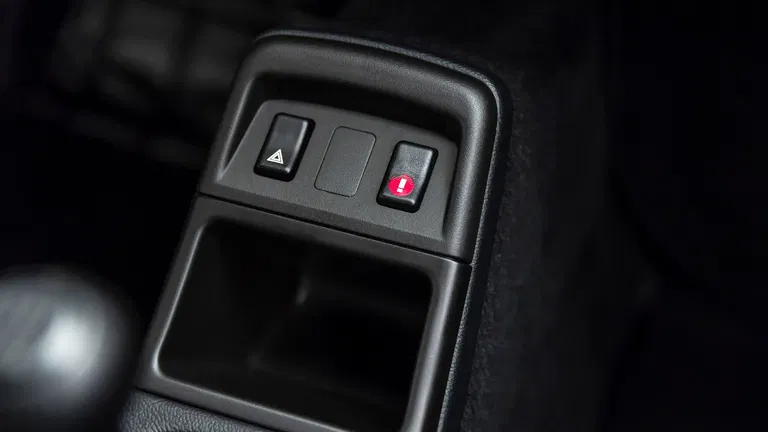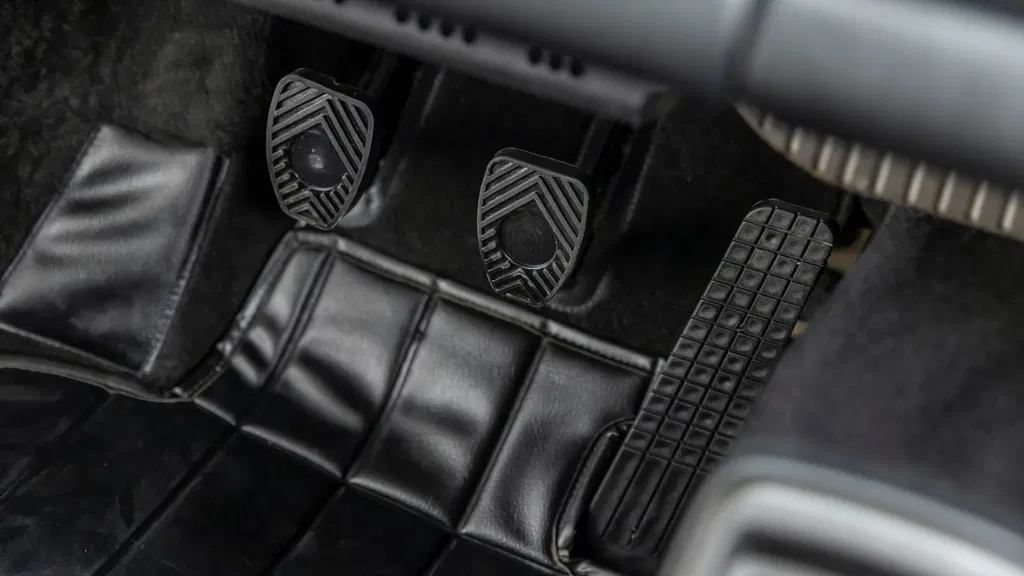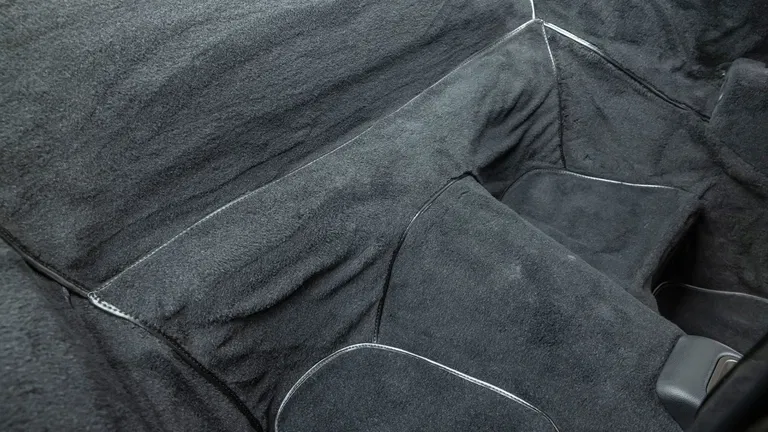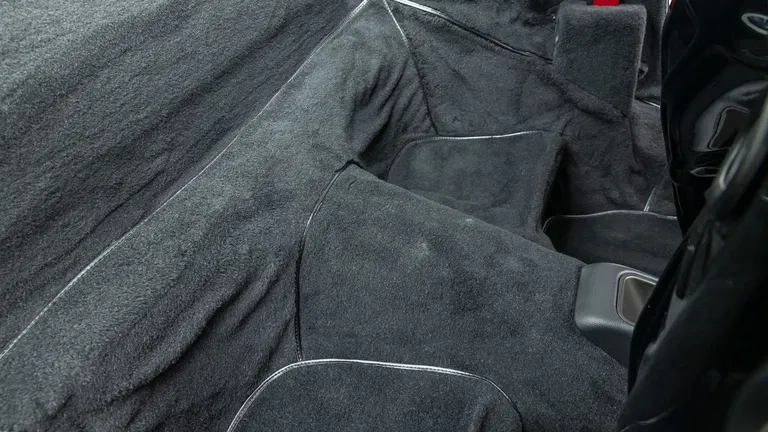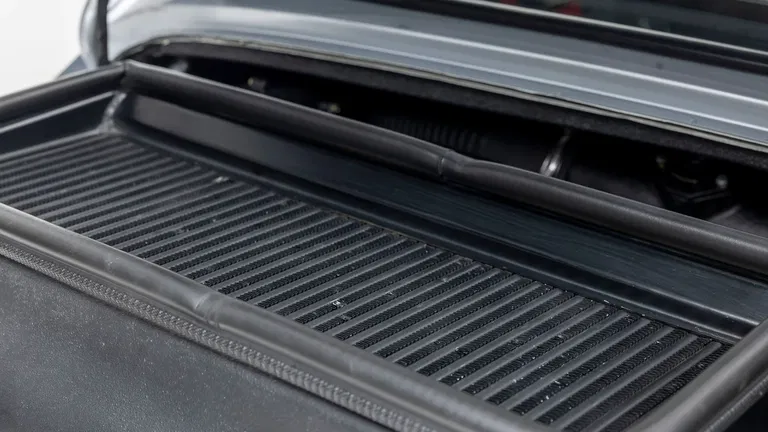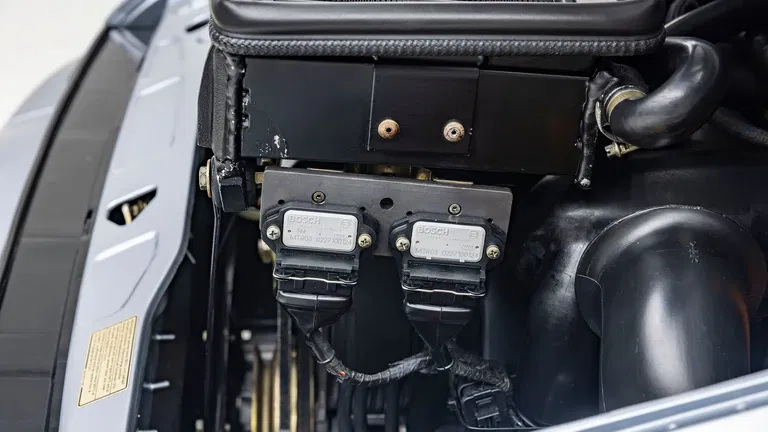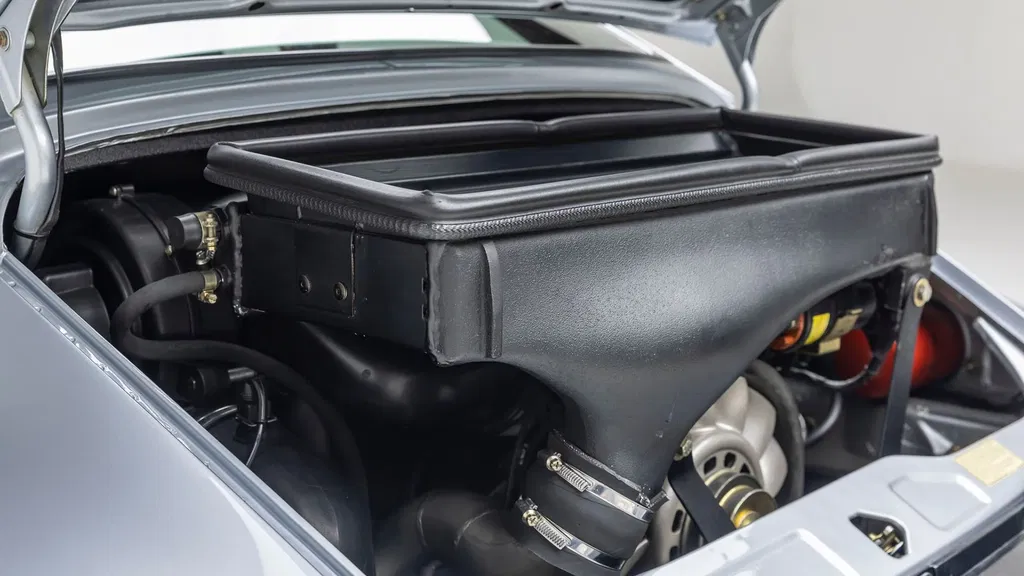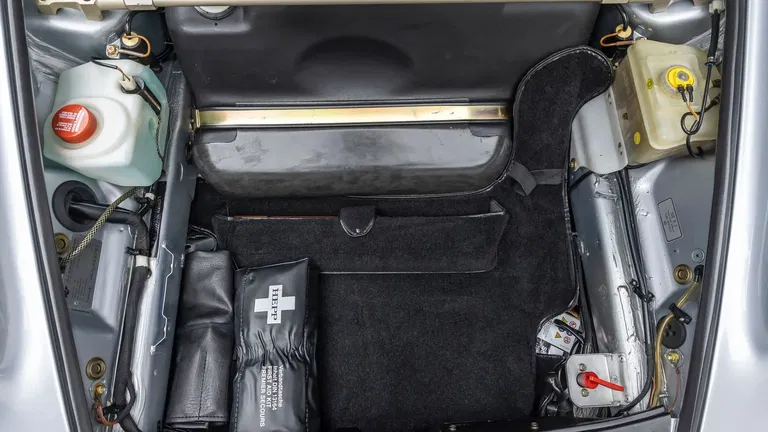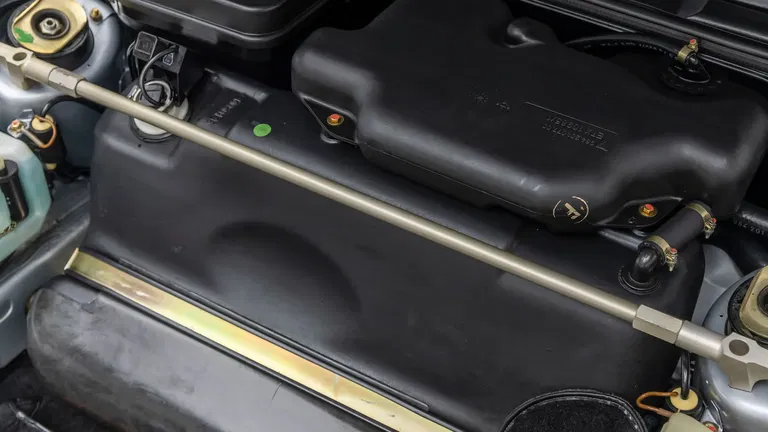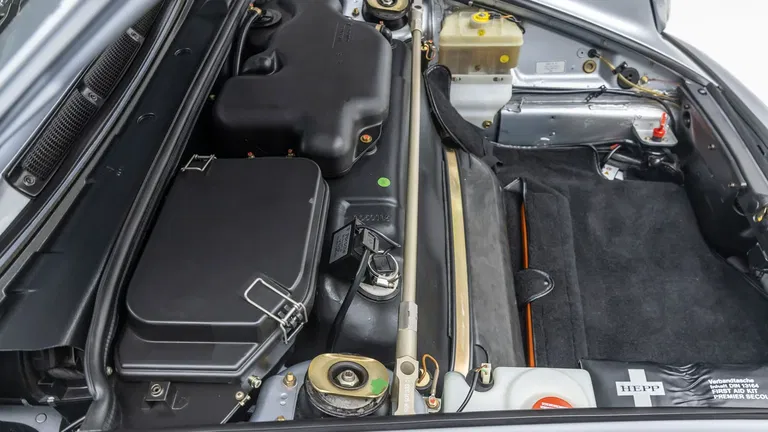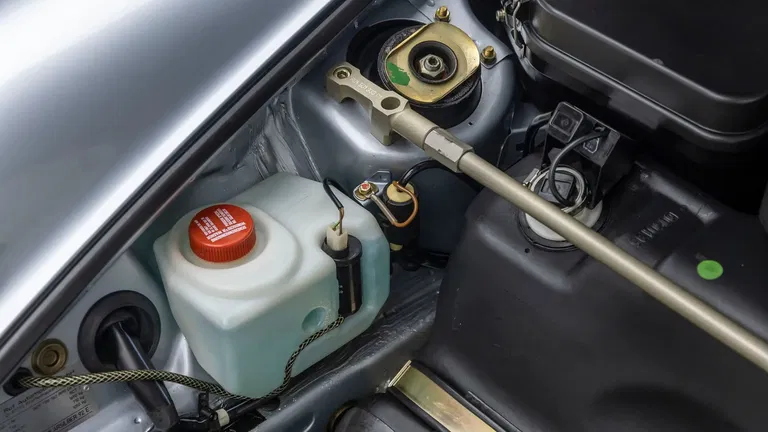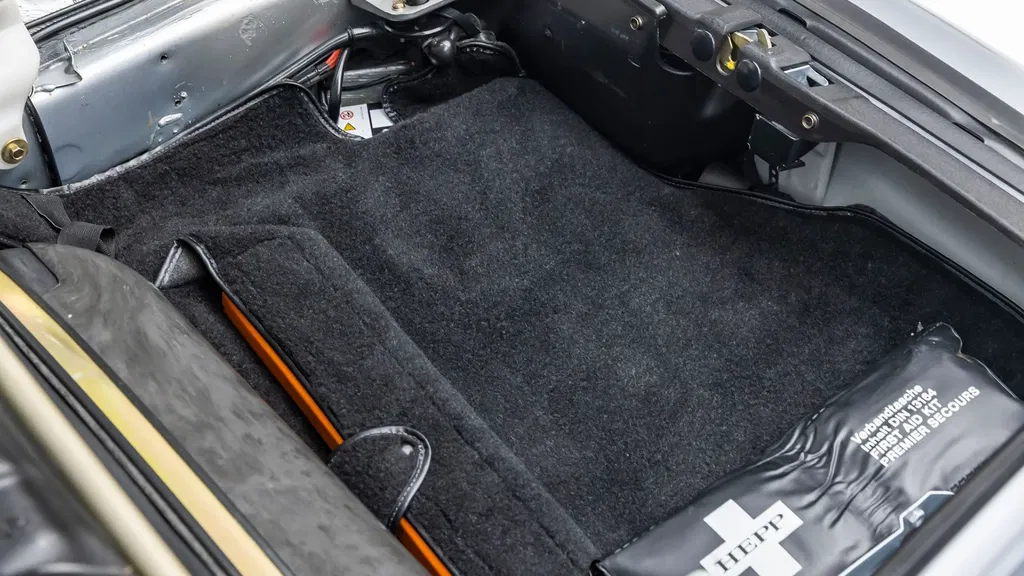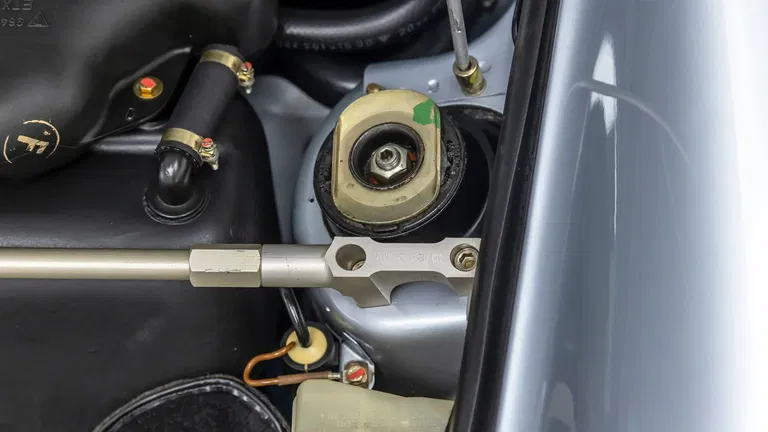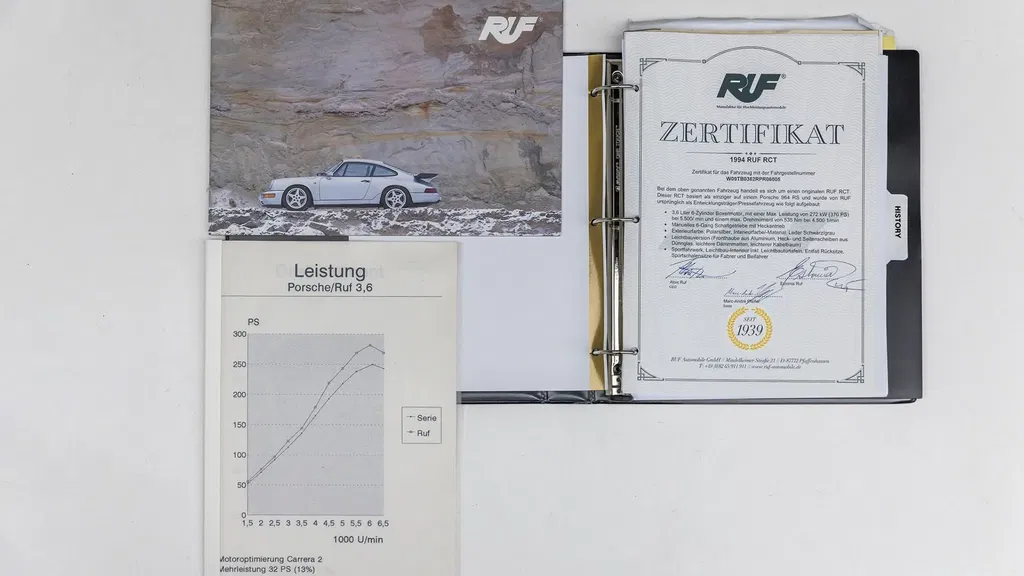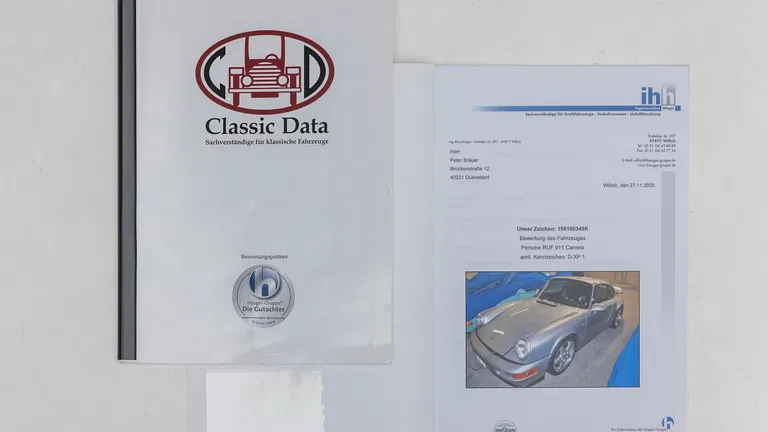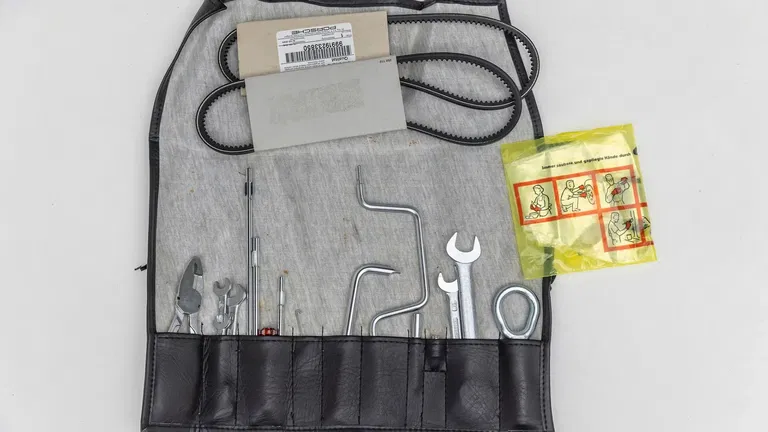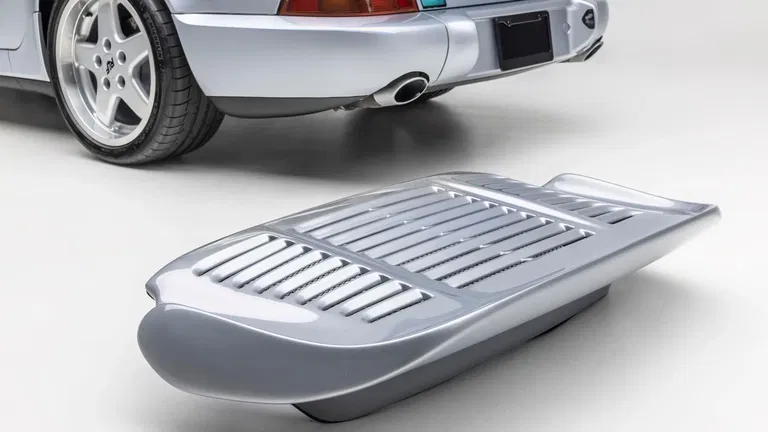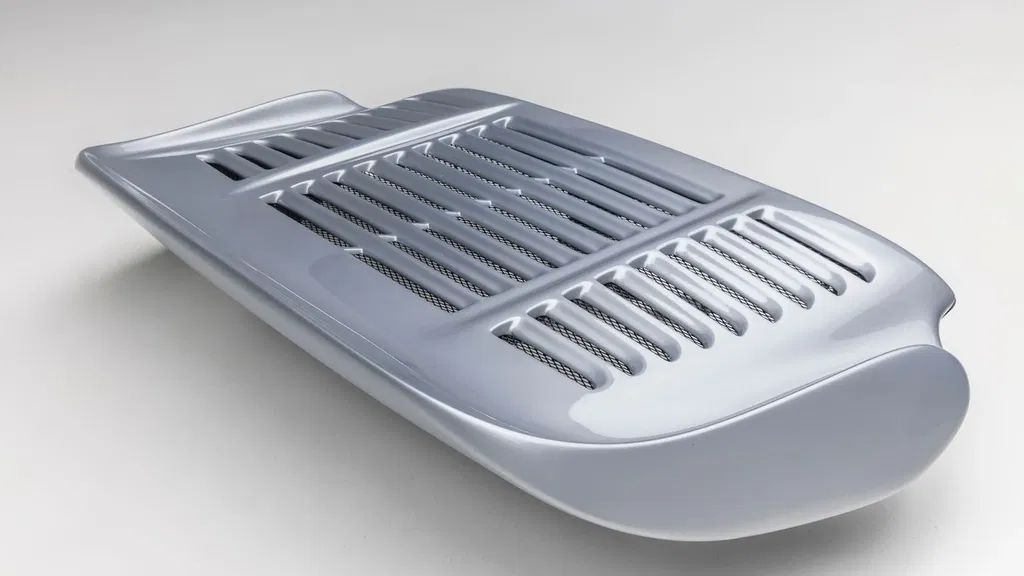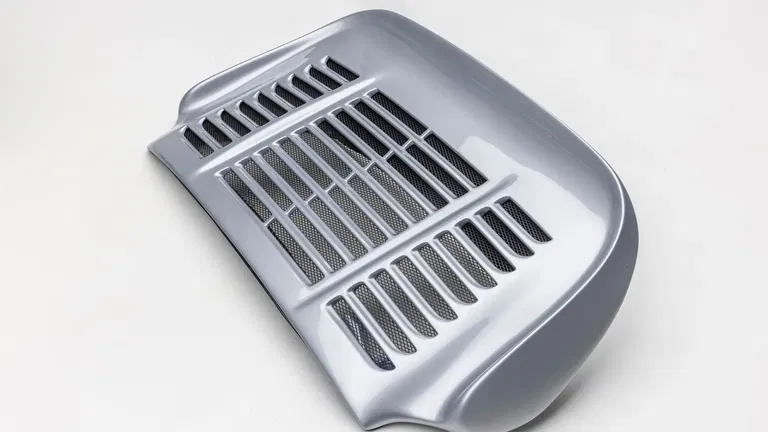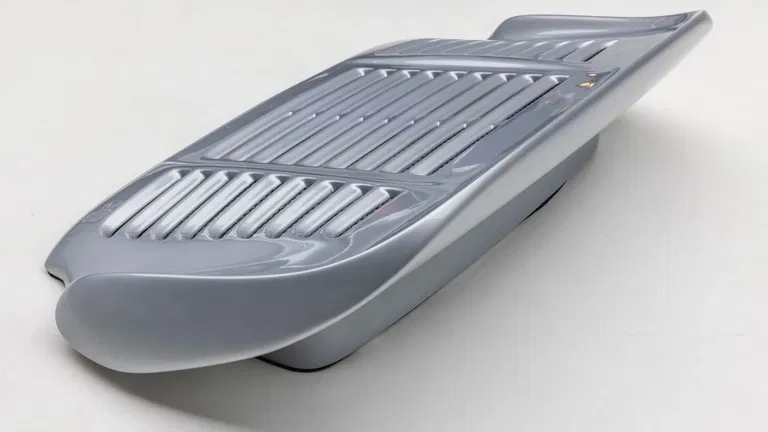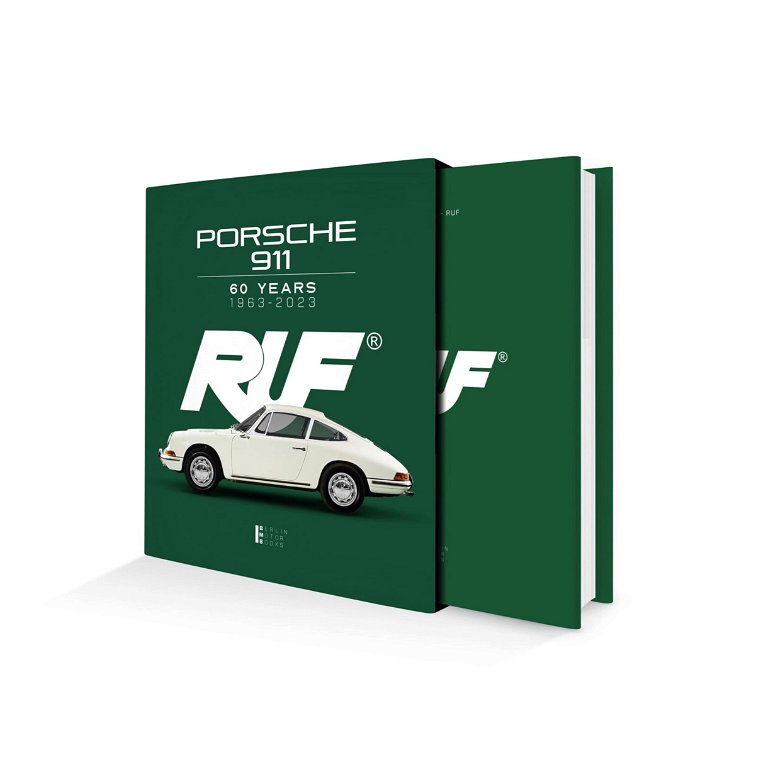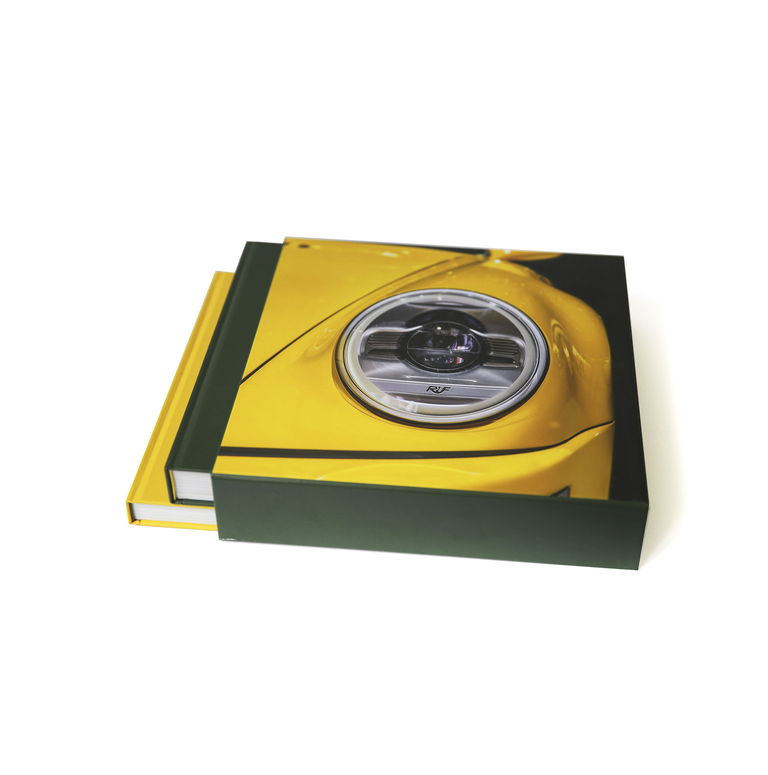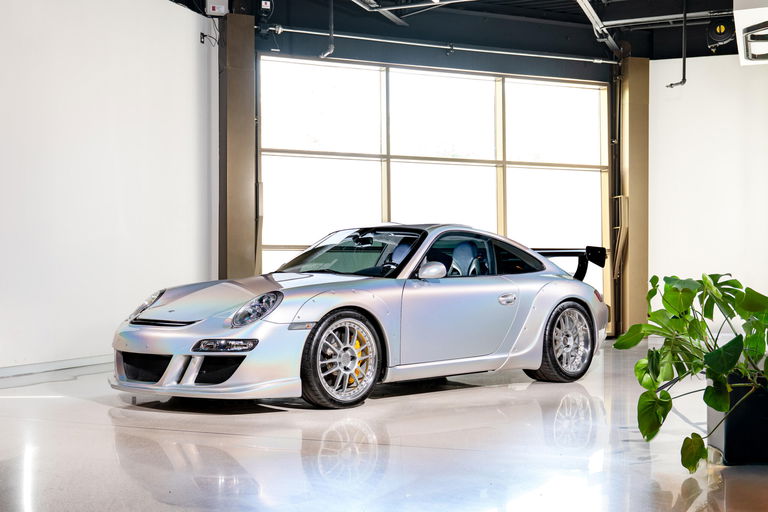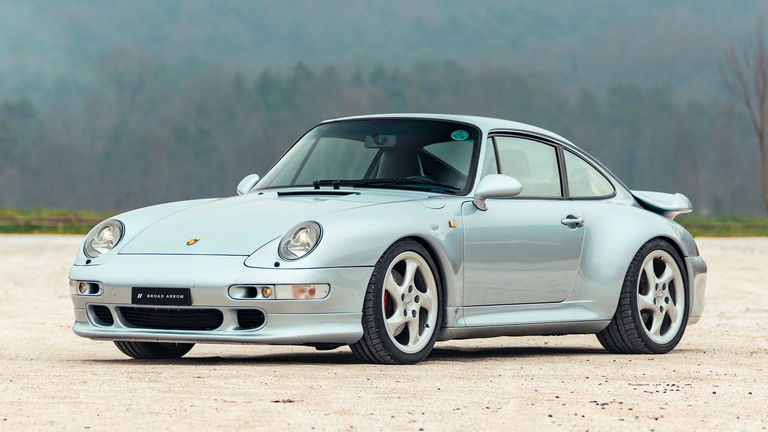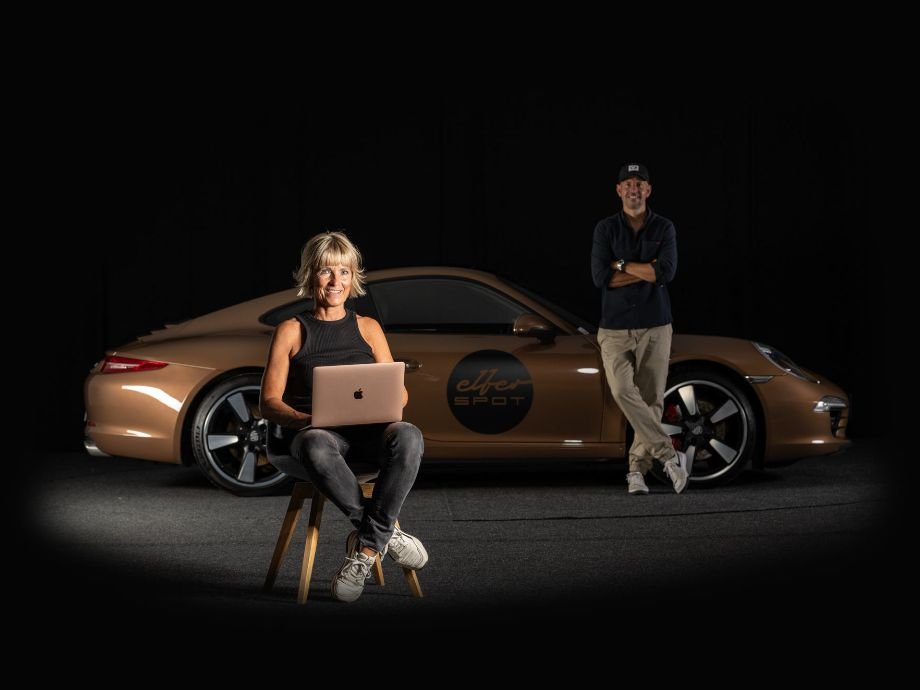During the second half of the 1980s RUF held the attention of nearly everyone interested in high-performance sports cars with their iconic Yellow Bird. A new decade brought a new 911, “85 percent new” in fact, and this 964-generation 911 would form the basis for the new RUF RCT (RUF Carrera Turbo).
Like many RUFs, the RCT’s engine is the star. A turbocharged and intercooled 3.6-liter flat-six with Bosch-Motronic engine management packs 370 horsepower and a highly impressive 395 lb-ft of torque flowing through a RUF exhaust system. A RUF-designed six-speed manual transmission puts the power to the road via 18-inch RUF-Speedline wheels that aged, if possible, even better than the original Yellow Bird’s. While engine focused, Alois Ruf didn’t neglect the rest of the car. The brakes, suspension, and aerodynamics were all upgraded, each of them a “must-have” at the speeds the RCT can generate. In fact, Road & Track said in December 1993 that “You (can) push the RCT like crazy, deep into a corner, and just as you’re expecting it to get light, the car plants its tires and takes a set like cement. Nothing is done softly, but in a machine this pure, there’s no reason in the world that it should be.” The Zertifikat notes that this chassis was, in fact, the development and press vehicle for the entire RCT model line. As RUF’s press car, the author of those words penned them about this particular car and little has changed since that test drive in 1993.
According to its RUF Zertifikat, this example is the only RCT built from a 964-generation Carrera RS, in this case a “Leichtbauversion” sport. Porsche enthusiasts know that the unibody of the Carrera RS was completely seam-welded for additional stiffness and delivered without undercoating to reduce weight. Looking to make that perfect first impression, RUF didn’t skimp on their press vehicle specification. Based on the “Leichtbau” sport version Carrera RS it featured a front aluminum hood, thin glass rear and side windows, reduced insulation, and a lighter wiring harness. Weight was also trimmed by fitting lightweight door panels, manual mirrors, roll-up windows, and thinner carpeting. It was finished in Polar Silver, a new silver with a hint of blue introduced by Porsche in the early 1990s, with Black interior with Recaro Pole Position seats. RUF made the interior their own with special door sill plates, their classic three-spoke steering wheel, six-speed gear lever, and of course, their special gauges in vintage 356 green with raised ranges.
Owned internally by RUF Automobile GmbH, not only was this RCT shown and reviewed in many period magazine articles, but it was also featured in RUF’s period RCT brochure, a copy of which accompanies the sale of this car. According to a digital copy of the car’s German Fahrzeugbrief (Vehicle registration document) RUF’s ownership lasted from the car’s construction in 1993 until September 1994 whereby it entered private ownership for the first time. It’s first owner would be a long-term caretaker located in Heinsberg, Germany. Service book stamps during their 23-year ownership show the owner relied on RUF’s natural expertise of their own vehicles, with a dozen returns to Pfaffenhausen for scheduled annual maintenance over the years. Again, according to the Fahrzeugbrief, the first owner parted ways with this RCT in March 2017 with the service book recording a final European annual service and vehicle maintenance at Porsche Zentrum Dusseldorf on 18 March 2021 at 40,111 kilometers or approximately 24,924 miles. In 2021 this well-kept RUF RCT was imported to North America and today appears very much as it did in numerous publications over 30 years ago. Those versed in the specifics of this particular car may note that the original grey tri-color Recaro Pole Position seat inserts have been traded for a tartan plaid, quite reminiscent of those used on Ferry Porsche’s personal Sonderwunsch Oak Green Metallic 1975 911 Turbo. It must be said that the colors work perfectly in concert with Polar Silver exterior and visually lighten the interior.
Many of the world’s fastest cars have been built in Pfaffenhausen, Germany and, while RUF’s designs are often copied, there is no replicating their speed. This example, built for the company’s own development, is the only RUF Carrera Turbo built on a Carrera RS chassis, and is likely the most important RCT ever made. This unrepeatable 1990s supercar is offered with unbroken RUF factory service history, many original documents including a history file binder, over a dozen period magazines, and books with Carrera RS supplement in a RUF folio.
